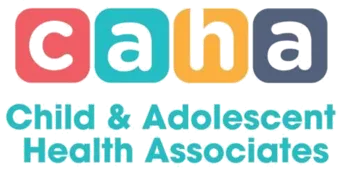Warm, sunny days are wonderful. It's great to exercise outside, and the sun feels good on your skin. But what feels good can harm you and your family. Read on for information from the American Academy of Pediatrics about how to keep your family safe from the sun’s harmful rays.
Read More
-
Fun in the Sun: Keep Your Family Safe
Category: newborns_infants_and_toddlers
-
Gastroenteritis: When Your Child Needs Hospital Care
Category: common_illnesses_and_conditions
Gastroenteritis is a common childhood illness that causes diarrhea and vomiting that can lead to dehydration. It is usually caused by a virus but can also be caused by bacteria or a parasite. Most of the time mild diarrhea and vomiting last for just a few days. However, if symptoms don't go away or they
Read More -
Giving Medicine to Children: Important Safety Information
Category: newborns_infants_and_toddlers
Giving medicine in the right way can help your child feel better and get well. However, medicine information and labels can be confusing. Read on for information from the American Academy of Pediatrics about prescription and over-the-counter medicines, how to give medicine in the right way, and how to
Read More -
Headaches: What Teens Need to Know
Category: common_illnesses_and_conditions
A lot of teens do. In fact, 50% to 75% of all teens report having at least one headache per month!
Read More -
Hepatitis B Vaccine: What Parents Need to Know
Category: newborns_infants_and_toddlers
Hepatitis B is a viral infection of the liver. It is caused by the hepatitis B virus (HBV). Lifelong HBV infection can lead to liver cancer or scarring of the liver (cirrhosis). More than 1 million people in the United States are living with
Read More -
Hepatitis C
Category: newborns_infants_and_toddlers
Anyone can get infected with hepatitis C virus (HCV), the virus that causes hepatitis C. Hepatitis C is a liver infection that can lead to serious liver problems and possibly death. Although most children and adolescents recover from the initial phase of HCV infection, 70% to 80% of acute infections
Read More -
How to Prevent Tooth Decay in Your Baby
Category: newborns_infants_and_toddlers
Baby teeth are important. If baby teeth are lost too early, the teeth that are left may move and not leave any room for adult teeth to come in. Also, if tooth decay is not prevented, it can be costly to treat, cause pain, and lead to life-threatening infections.
Read More -
How to Take Your Child's Temperature
Category: newborns_infants_and_toddlers
Your temperature (TEM-pruh-chur) is how warm or cold your body is. Normal temperature for a child is 98°F to 99°F or 37°C. Anything over 100.4°F or 38°C is a fever.
Read More -
Imaging Tests: A Look Inside Your Child's Body
Category: newborns_infants_and_toddlers
Imaging tests are used to “look” inside the body. They can help diagnose injuries and illnesses from broken bones to cancer. Some tests can find problems before symptoms appear. Here is information from the American Academy of Pediatrics about imaging tests.
Read More -
Immunizations: What You Need To Know
Category: newborns_infants_and_toddlers
Immunizations have helped children stay healthy for more than 50 years. They are safe and they work. In fact, serious side effects are no more common than those from other types of medication. Vaccinations have reduced the number of infections from vaccine-preventable diseases by more than 90%! Yet many
Read More -
Influenza (Flu): What You Need to Know
Category: newborns_infants_and_toddlers
Influenza is an illness caused by the influenza virus. While most people experience respiratory symptoms, influenza affects the whole body. Influenza is commonly known as the flu.
Read More -
Inhaled and Intranasal Corticosteroids and Your Child
Category: newborns_infants_and_toddlers
If your child has asthma or allergic rhinitis (hay fever), your pediatrician may prescribe a corticosteroid, also commonly referred to as a steroid. These medicines are the best available to decrease the swelling and irritation (inflammation) that occurs with persistent asthma or allergy. They are not
Read More -
Know the Facts About HIV and AIDS
Category: common_illnesses_and_conditions
HIV (human immunodeficiency virus) is a virus that can lead to AIDS (acquired immunodeficiency syndrome). While there is no cure for HIV, early diagnosis and treatment are very effective at keeping people healthy. In addition, there are things you can do to prevent getting HIV. Read on to learn more
Read More -
Lactose Intolerance and Your Child
Category: common_illnesses_and_conditions
After drinking milk or eating ice cream, does your child have stomach cramps or get diarrhea? If so, your child may have lactose intolerance.
Read More -
Lyme Disease
Category: newborns_infants_and_toddlers
Lyme disease is an important public health problem in some areas of the United States. Since its discovery in Lyme, CT, in 1975, thousands of cases of the disease have been reported across the United States and around the world. By knowing more about the disease and how to prevent it, you can help keep
Read More -
Managing Chronic Health Needs in Child Care and Schools—Allergic Skin Conditions
Category: common_illnesses_and_conditions
Estimates are that up to 20% of infants and young children may be affected by eczema at some point. There is no good data about how frequently hives and contact dermatitis occur.
Read More
Our Location
1030 N Clark Street, Suite 400 Chicago, IL 60610
Hours of Operation
We are now accepting walk-ins Monday - Saturday from 8:30 - 11:30am! Telemedicine appointments are still offered based on availability.
Child & Adolescent Health Associates
Monday:
8:30 am-5:00 pm
Tuesday:
8:30 am-7:30 pm
Wednesday:
8:30 am-5:00 pm
Thursday:
8:30 am-7:30 pm
Friday:
8:30 am-5:00 pm
Saturday:
8:30 am-11:30 am
Sunday:
Closed
